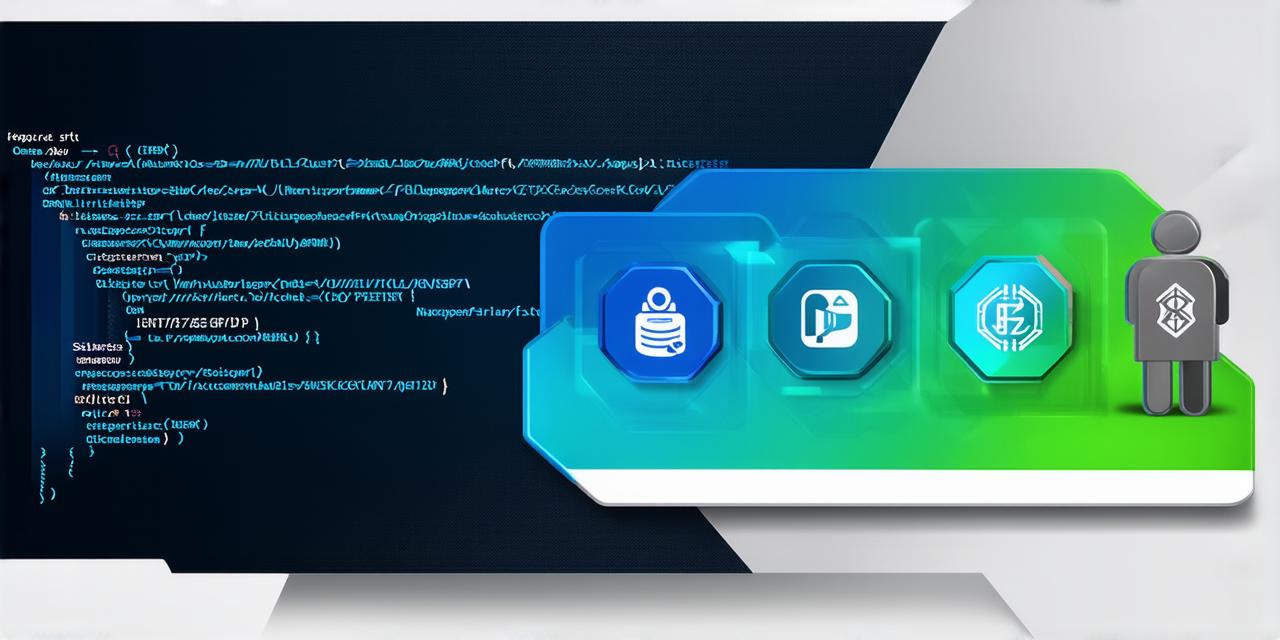How to start my own blockchain
Advantages of Starting Your Own Blockchain
Starting your own blockchain project can provide several benefits, including:
- Security and transparency: Blockchain technology is known for its high level of security and transparency. By creating a blockchain, you can ensure that your data is secure and cannot be tampered with or hacked. Additionally, the transparent nature of blockchain makes it easy to track transactions and verify the accuracy of information shared on the network.
- Cost-effective: Blockchain technology eliminates intermediaries, such as banks and middlemen, which can significantly reduce costs associated with data sharing and transactions. This is particularly important for organizations that handle large amounts of data or conduct high-volume transactions.

- Customization: With a blockchain, you have the flexibility to customize the network to suit your specific needs. This includes setting rules for data sharing, defining permissions and access levels, and determining how transactions are processed.
- Innovation: Blockchain technology has the potential to revolutionize various industries, including finance, healthcare, and logistics. By creating your own blockchain project, you can develop innovative solutions that address specific pain points in these industries.
Disadvantages of Starting Your Own Blockchain
However, starting a blockchain project also comes with its share of challenges, such as:
- Technical complexity: Blockchain development requires technical expertise and knowledge of programming languages like Solidity, Smart Contract, and others. Additionally, you will need to understand the underlying principles of blockchain technology and how it works.
- Time-consuming: Developing a blockchain project can be a time-consuming process that requires significant resources, including personnel, infrastructure, and funding. It’s important to plan and allocate sufficient time for each stage of development to ensure a successful outcome.
- Scalability challenges: As the number of users and transactions on your blockchain network grows, scalability becomes a challenge. You will need to design and implement solutions that can handle increased traffic and data volume without compromising performance or security.
- Regulatory compliance: Depending on your jurisdiction and industry, there may be regulatory requirements that you must comply with when developing and launching a blockchain project. This includes understanding and adhering to relevant data privacy laws, anti-money laundering regulations, and others.
Types of Blockchains
There are several types of blockchains available, each with its unique features and benefits:
- Public blockchain: A public blockchain is a decentralized network that is accessible to anyone and allows any participant to join and participate. Examples of public blockchains include Bitcoin and Ethereum.
- Private blockchain: A private blockchain is a decentralized network that is only accessible to authorized participants, such as employees or members of an organization. This type of blockchain is often used for enterprise applications, supply chain management, and other internal business processes.
- Hybrid blockchain: A hybrid blockchain combines the features of public and private blockchains to create a network that is both accessible to the public and secure for authorized participants. This type of blockchain is often used for applications that require both transparency and confidentiality, such as identity verification and voting systems.
- Distributed ledger technology (DLT): DLT is a type of database that is distributed across multiple computers or devices. While not a specific type of blockchain, DLT is often used to create decentralized applications (dApps) that can run on different platforms without the need for a central authority.
Best Practices for Blockchain Development
Here are some best practices for blockchain development:
- Define your goals and objectives: Before starting your blockchain project, it’s important to define your goals and objectives. This will help you determine the type of blockchain that is best suited for your needs and the resources required to develop and launch the network.
- Build a strong team: Developing a successful blockchain project requires a strong team with diverse skills and expertise. This includes developers with experience in programming languages like Solidity and Smart Contract, as well as subject matter experts in relevant industries.
- Test extensively: Before launching your blockchain network, it’s important to test it thoroughly to ensure that it is secure, reliable, and scalable. This includes conducting penetration testing, stress testing, and user acceptance testing.
- Comply with regulations: As mentioned earlier, there may be regulatory requirements that you must comply with when developing and launching a blockchain project. It’s important to understand the relevant laws and regulations in your jurisdiction and ensure that your project complies with them.
- Provide excellent user experience: To ensure widespread adoption and acceptance of your blockchain project, it’s important to provide an excellent user experience. This includes designing a user-friendly interface, providing clear documentation and support resources, and offering incentives for participation.
- Stay up-to-date with the latest developments: Blockchain technology is constantly evolving, so it’s important to stay up-to-date with the latest developments in the field. This includes understanding new technologies, trends



